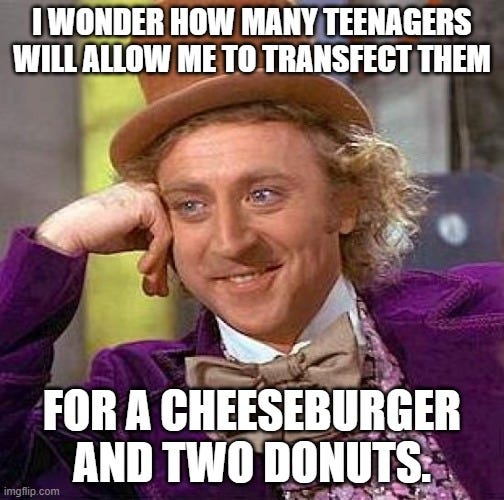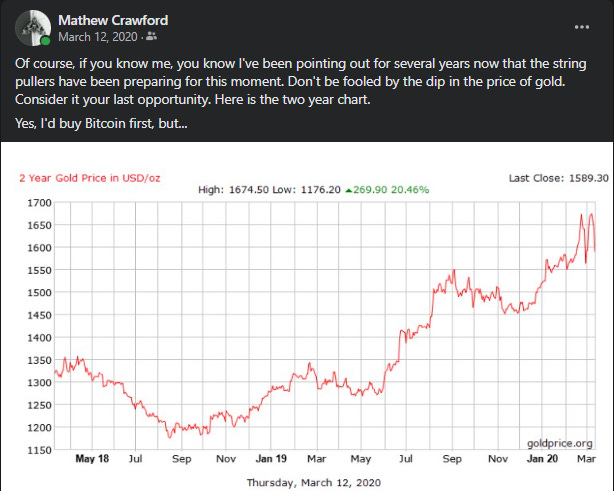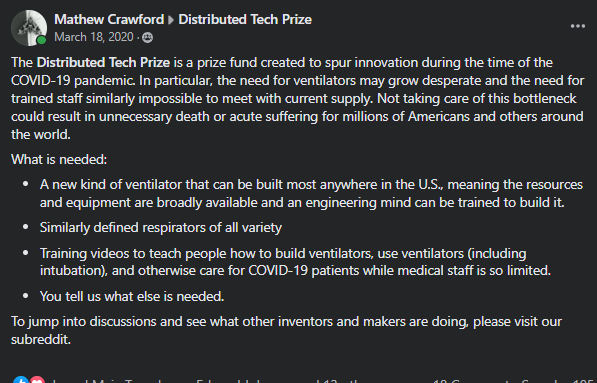"As for me, prizes are nothing. My prize is my work." -Katharine Hepburn
Do not misunderstand this quote. For those truly dedicated to a work, the work is the primary prize (so long as money is not an issue, but it often is in this world). Even when money is not a motivation, that does not mean that prizes are worth nothing for everyone else.
Steve Kirsch recently announced some prizes of note, involving substantially sums of money, that could "end the pandemic almost instantly." Steve's ideas during the pandemic have struck me as "interesting" to "excellent" and everything in between, but this one struck me as perhaps the best one because of what all it demonstrates about the pandemic. I will explain, but first, let us build up an understanding of prizes and contests throughout history. I promise to be brief.
A Brief History of Public Prizes
Who knows when the first prize was offered for some great feat that would benefit or even save a society. There are mythologies built around heroes and gods who were exalted for great feats. These feats often involved a king or a god announcing a prize to solve X or defeat Y.
Over the years, a handful of prizes became standard markers for great excellence, or at least the appearance of great excellence: The Nobel Prize, the Fields Medal, American Idol, the Fulbright Scholarship Program, the nation of Cuba, etc.
More recently, perhaps because the billionaire class seems to be breeding like rabbits, there seem to be prizes for a great many modern feats like a million dollar prize for the best Netflix algorithm. While some people question the utility of that prize, it demonstrated exactly where artificial intelligence research stood at the time, which was predicted by my friend and computer scientist Mike Korns. Sadly, I can find no writeup about that on the internet, though a substantial circle of people know the story because it's also the way Mike built algorithms for his hedge fund: taking other people's "pure" algorithms and mashing them together into a Frankensteinian mixed strategy that weighted each of the algorithms used.
Also, a Sudanese billionaire offered a cash prize to save Africa from corruption, and Willy Wonka gave away his chocolate factory to a child who largely wasn't corrupted.
Prizes do several important things:
They provide incentives (though Hepburn is correct about how the best talent often performs by a set of internal values).
Even the appearance of incentives piques the curiosity of the public, and that generates greater investment where there are problems that may be underinvested.
Brings attention to the best products and solutions to the problem(s) faced.
Generate endless streams of catchy oompa loompa tunes.
Pandemic Prizes
While I felt that something wasn't right about the pandemic from the start, I briefly operated on the principle that maybe not everything being done was completely wrong (even though almost all of it turned out to be just that). As I have written, I felt that economics was behind the crisis in some form, and related to the beginning of the end of the dollar as reserve currency.
While I've never been a gold bug, I correctly identified the week of last opportunity to buy gold below $1600 since.
Economic literacy provides its own prizes. But more immediately, I was genuinely worried about the potential scenario of hospital system collapse. So, I created a prize for somebody to devise a medical device that could improve oxygen uptake for those outside of a hospital long enough to get them over the hump, and could be produced from ordinarily and locally sourced parts. I seeded the prize with $5000 and began making phone calls.
Along the way I discovered that some top notch medical device inventors had already thought to work on similar projects. I also suspected that I would run into another prize seeded by somebody far more money (and I could then channel commitments and pledges I gathered into that one), but you don't get to that point by sitting back and doing nothing behind your computer screen.
I created a video which I have since deleted, distributed through YouTube for the prize and began corresponding with donors and technologists for a few weeks as my understanding of the pandemic shifted toward, "Wait, this is not as bad as they told us, and much of the damage is the result of clumsy management."
I share this story (which I had almost completely forgotten in two short years, oddly) to hammer home the point:
Prizes for unique and valuable solutions to major aspects of the pandemic should have been expected to be a standard and ever-present aspect of a naturally occurring pandemic.
And yet, I do not know of anyone aside from Steve who has put forth what now seems like the world's most obvious Pandemic Prize pool.
I take that as evidence of the Plandemonium Hypothesis, which is that a large portion of the world's powerful people artificially amped up the pandemic to serve themselves. I don't mean that it is the primary evidence or only evidence worth discussing (obviously, this is an article series), but it's worth noting because a world without Pandemic Prizes seems like a complete shock to experience. It makes no sense.
The Kirsch Prizes
Steve Kirsch became a successful tech CEO and inventor because he is a world class problem solver. While I haven't agreed with every one of his solutions, he does a great job of studying them, taking other opinions and ideas into account, then ditching the less effectives ones in favor of focusing on the most effective ones. That's how successful CEOs work (which is why somebody should have come up with these prizes long before now).
Steve's most recent idea (these prizes) might be my favorite of his ideas to date since it gives me good reason to pause and reflect on the potentially artificial nature of many aspects of the pandemic.
Specifically, he says,
So suppose Elon Musk (or some other high profile individual or institution like Harvard) offers an X-Prize for:
the best early treatment protocol ($1M reward)
the best in-patient (hospital) treatment protocol ($10M reward)
Yes, this should be done.
Also, yes, this should have been done.
And yes, you should send this to your skeptical friends who seem to know that something is up, but haven't committed to doing the work to help reformulate the shared truths of reality so that we can learn to move forward from this point, which looks more and more like some sort of breaking point for a lot of major global systems.








The original prize was the government incentives given to the healthcare providers for each covid positive test, each patient admitted, each patient in the ICU and on a vent, each patient on FDA mandated meds, and each patient dead from Covid. A private incentive/prize could top that a few times, but likely not enough times to sway a whole embedded (corrupt) system to the side of right without going totally broke.
Anyone offering a prize for a solution that drains the swamp?